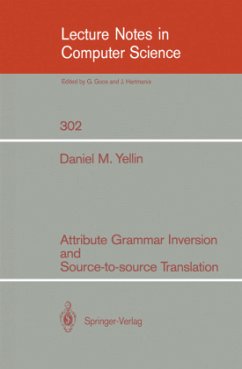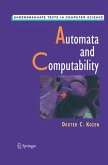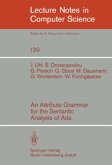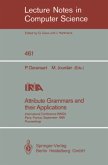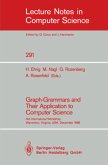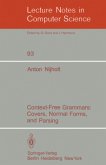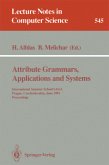With the proliferation of computer languages and dialects, it is important to create tools to aid in the construction of source-to-source translators. By allowing users to make use of software (or data) written for another system, these tools form an important component in the quest for software reusability. After discussing the theoretical and practical issues of attribute grammar inversion, this book demonstrates how the technique can be used to build source-to-source translators. This is done by first identifying a common canonical form in which to represent the various source languages and then writing attribute grammars from each source to the canonical form. By automatically inverting these attribute grammars one obtains translators from the canonical form back to each source language and by composing the appropriate pairs of translators one obtains source-to-source translators. To prove the feasibility of the inversion approach to source-to-source translation, it has been used to generate translators between the programming languages Pascal and C.
Hinweis: Dieser Artikel kann nur an eine deutsche Lieferadresse ausgeliefert werden.
Hinweis: Dieser Artikel kann nur an eine deutsche Lieferadresse ausgeliefert werden.

